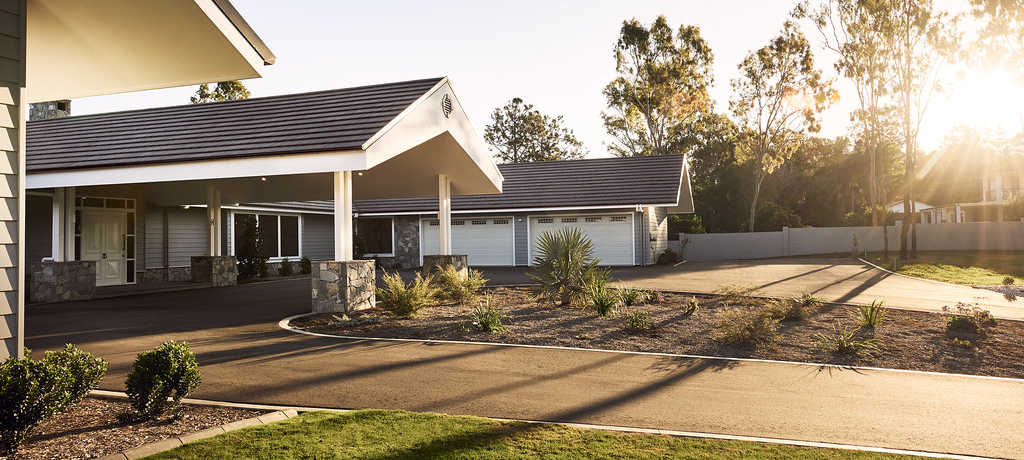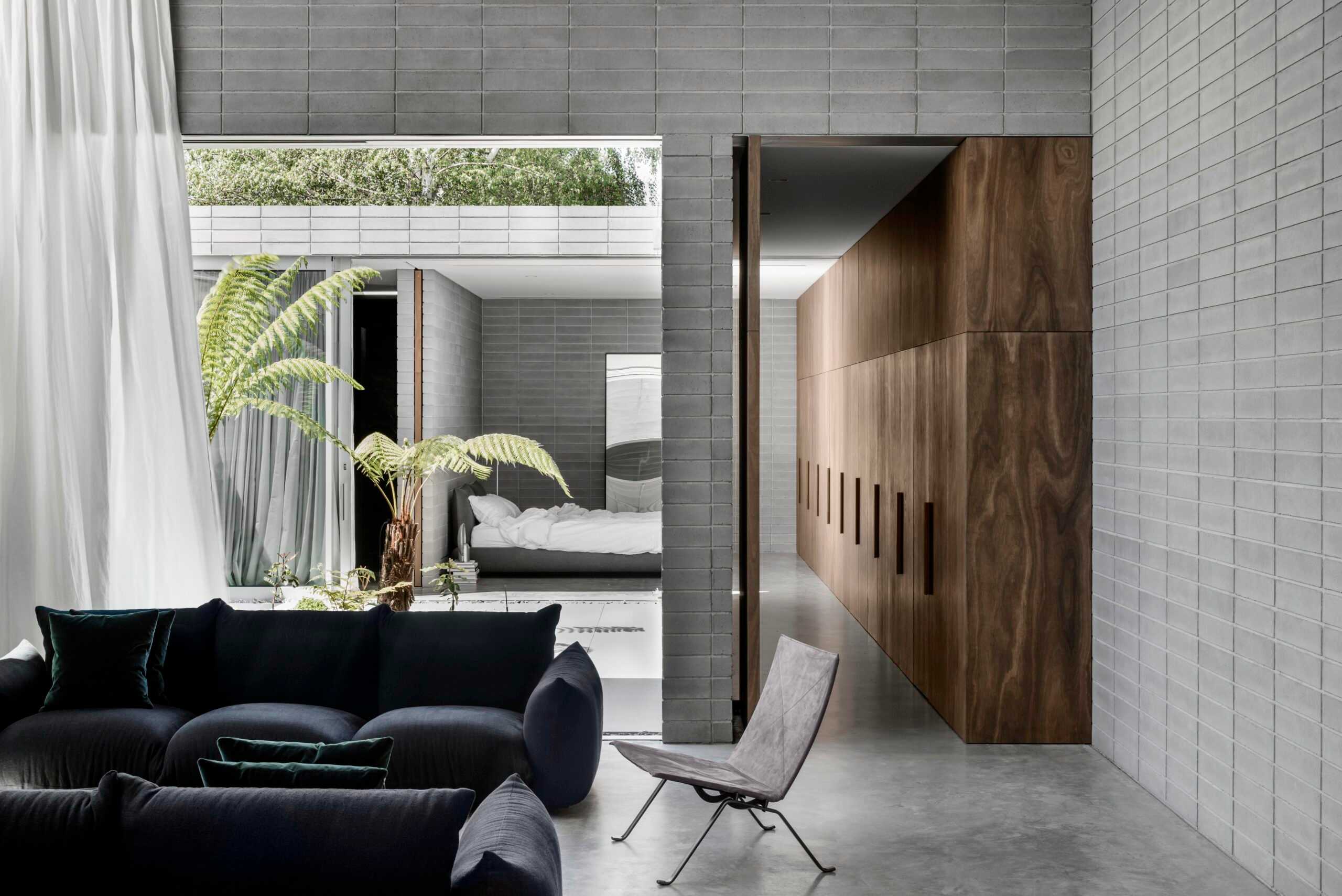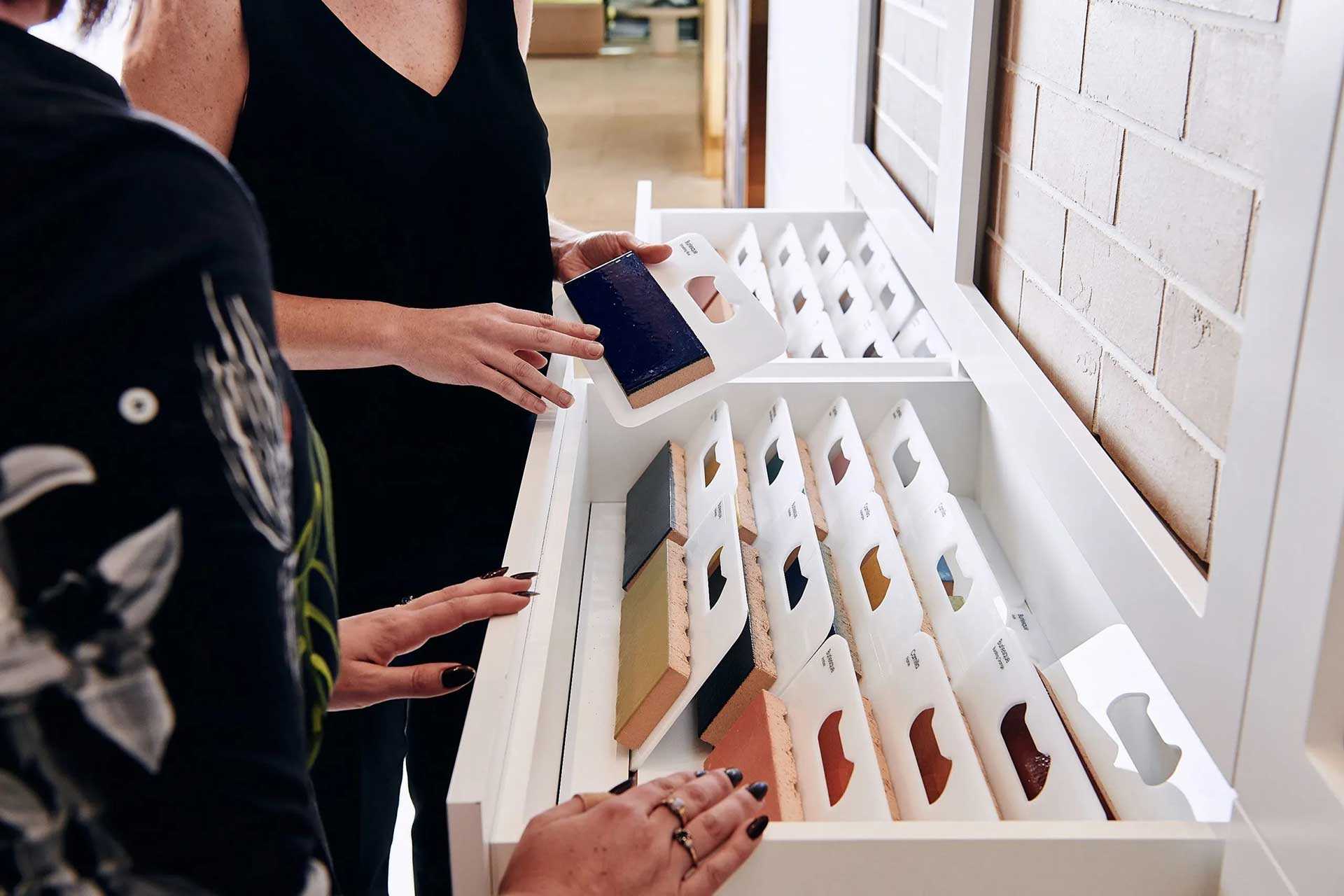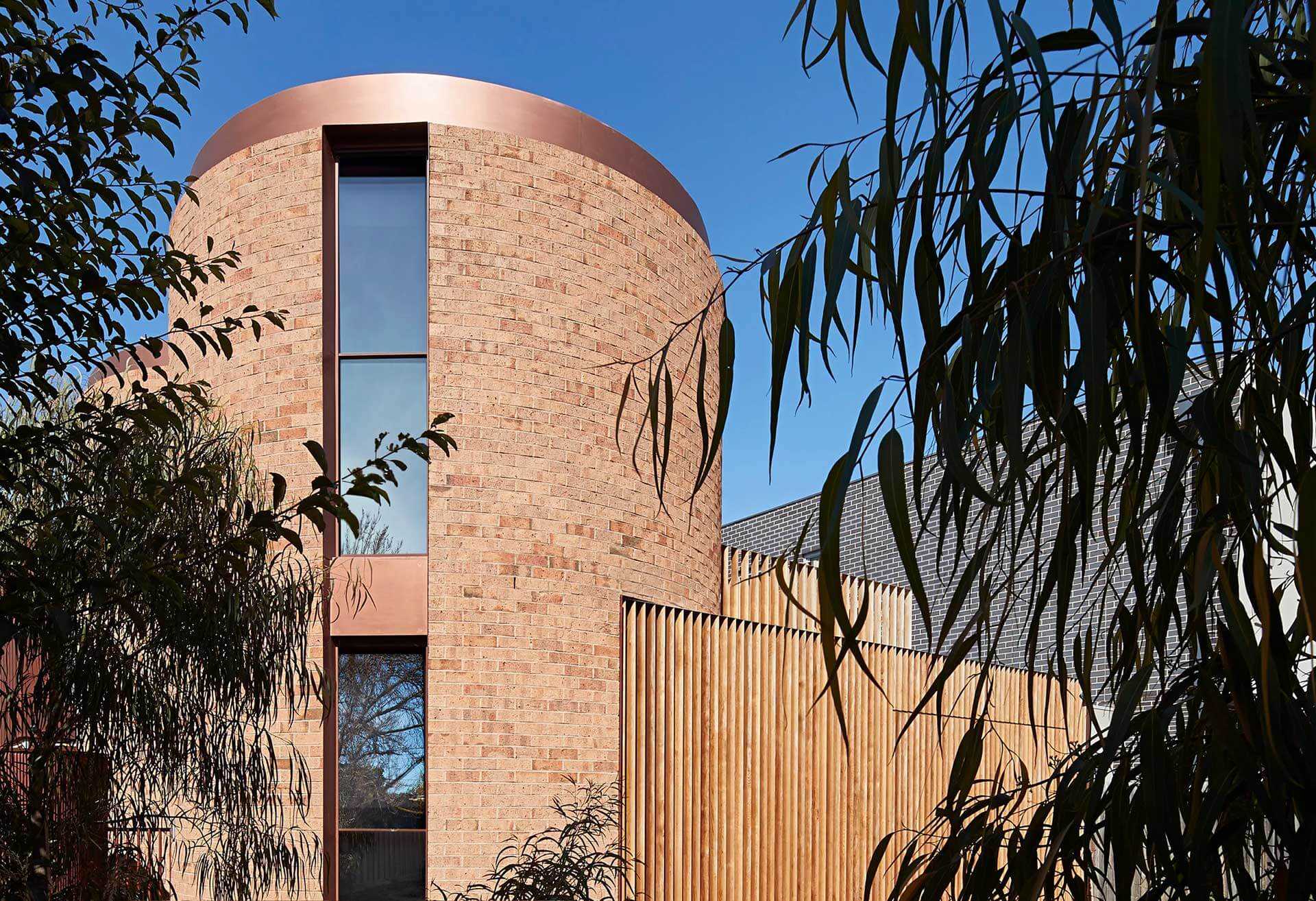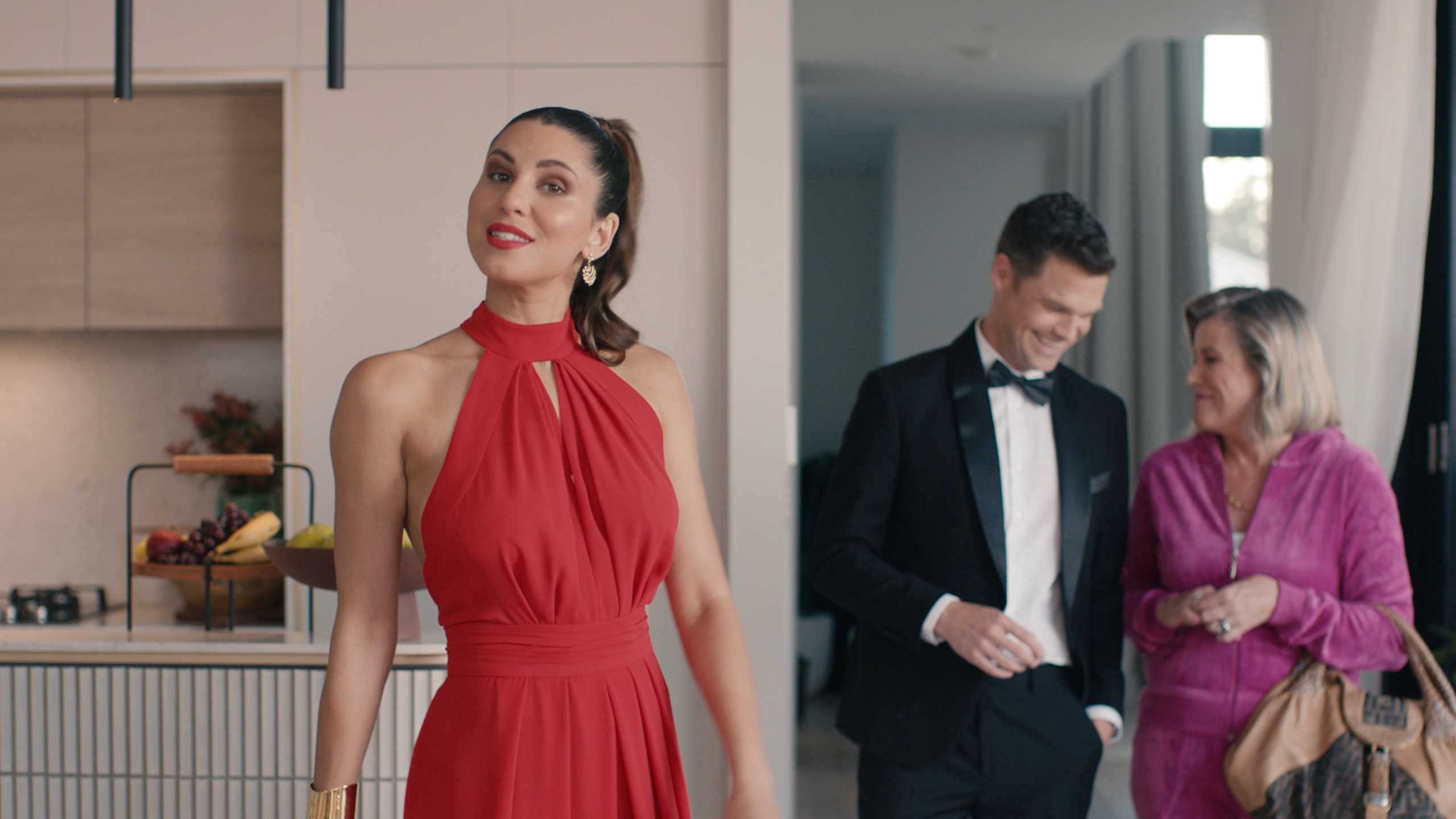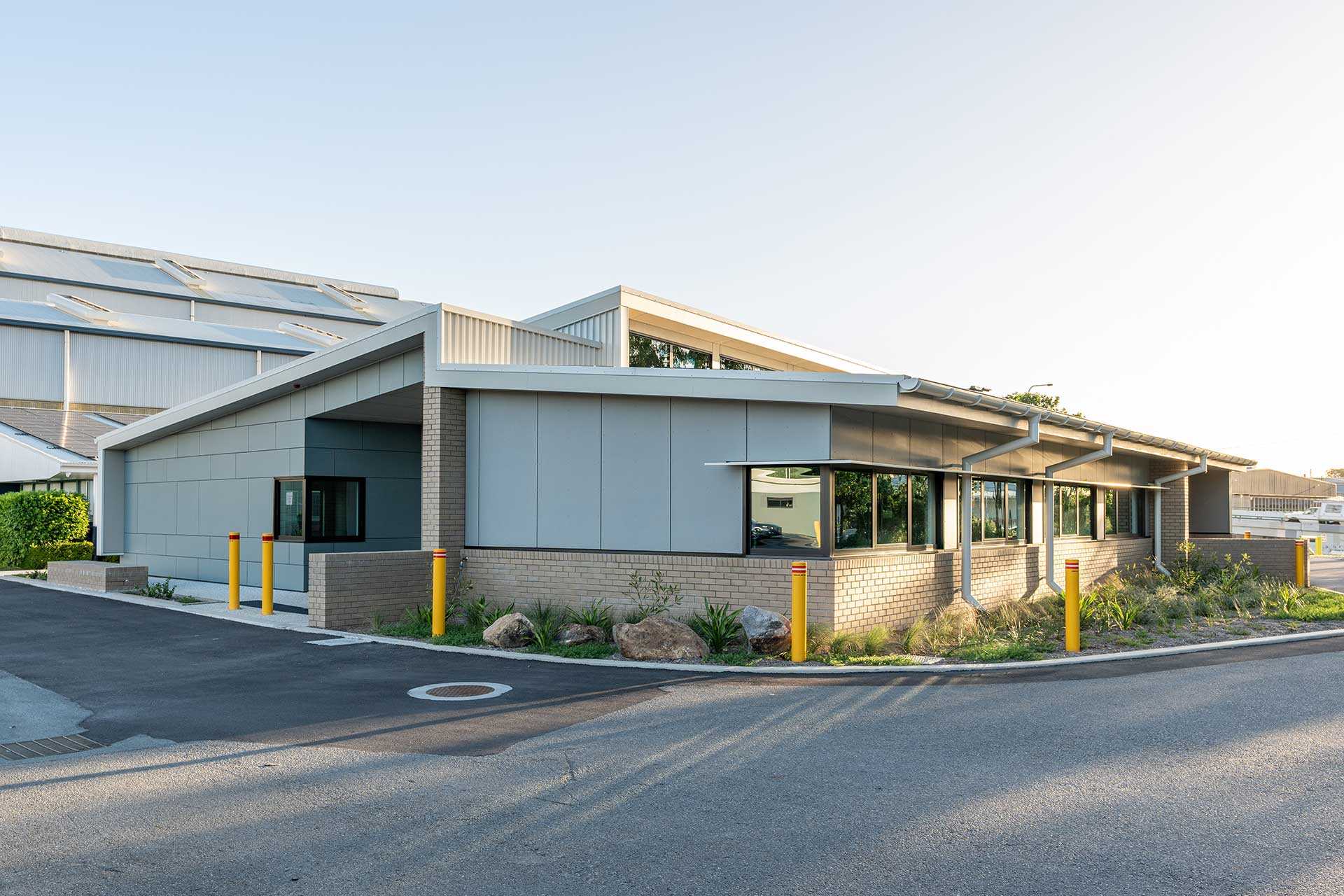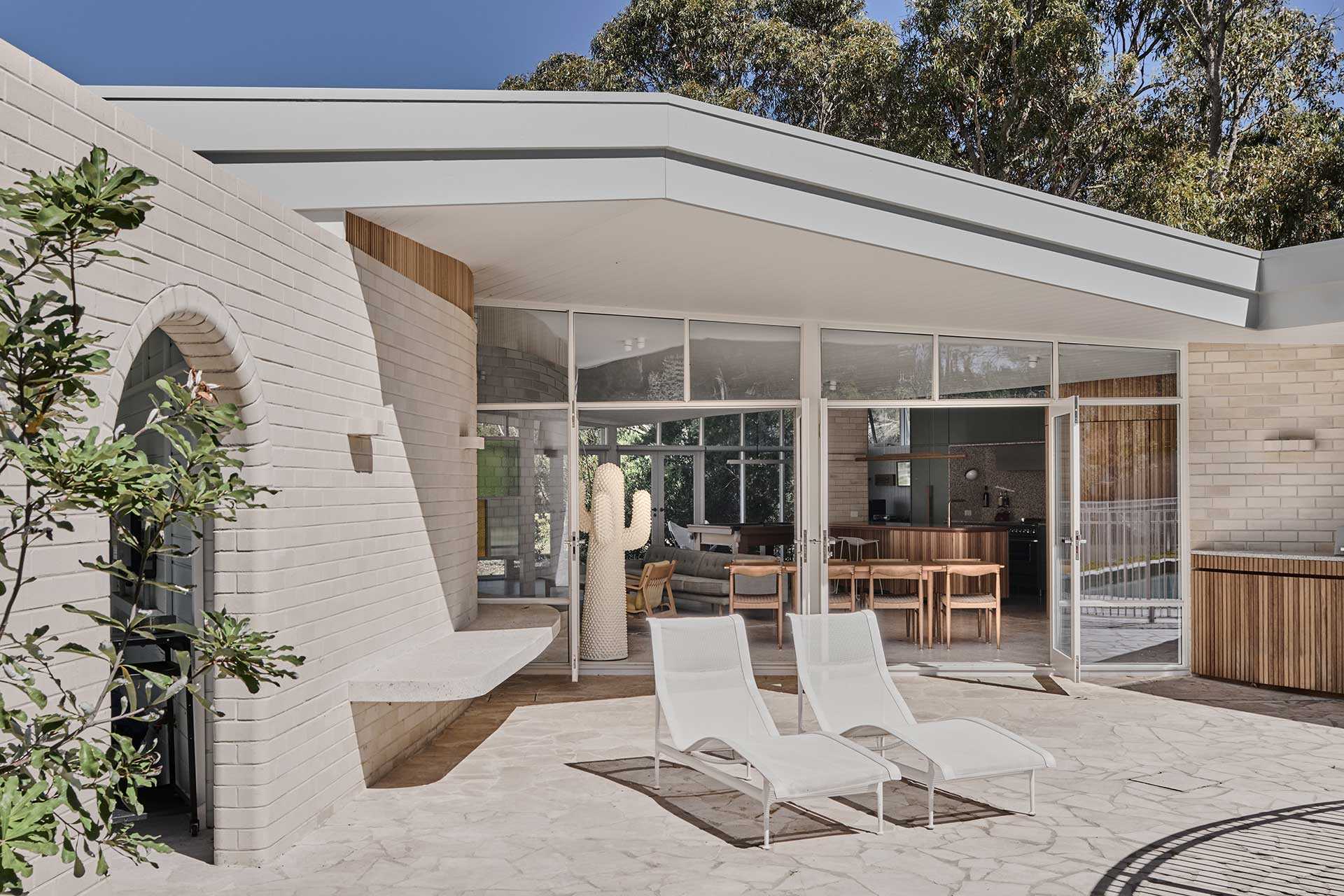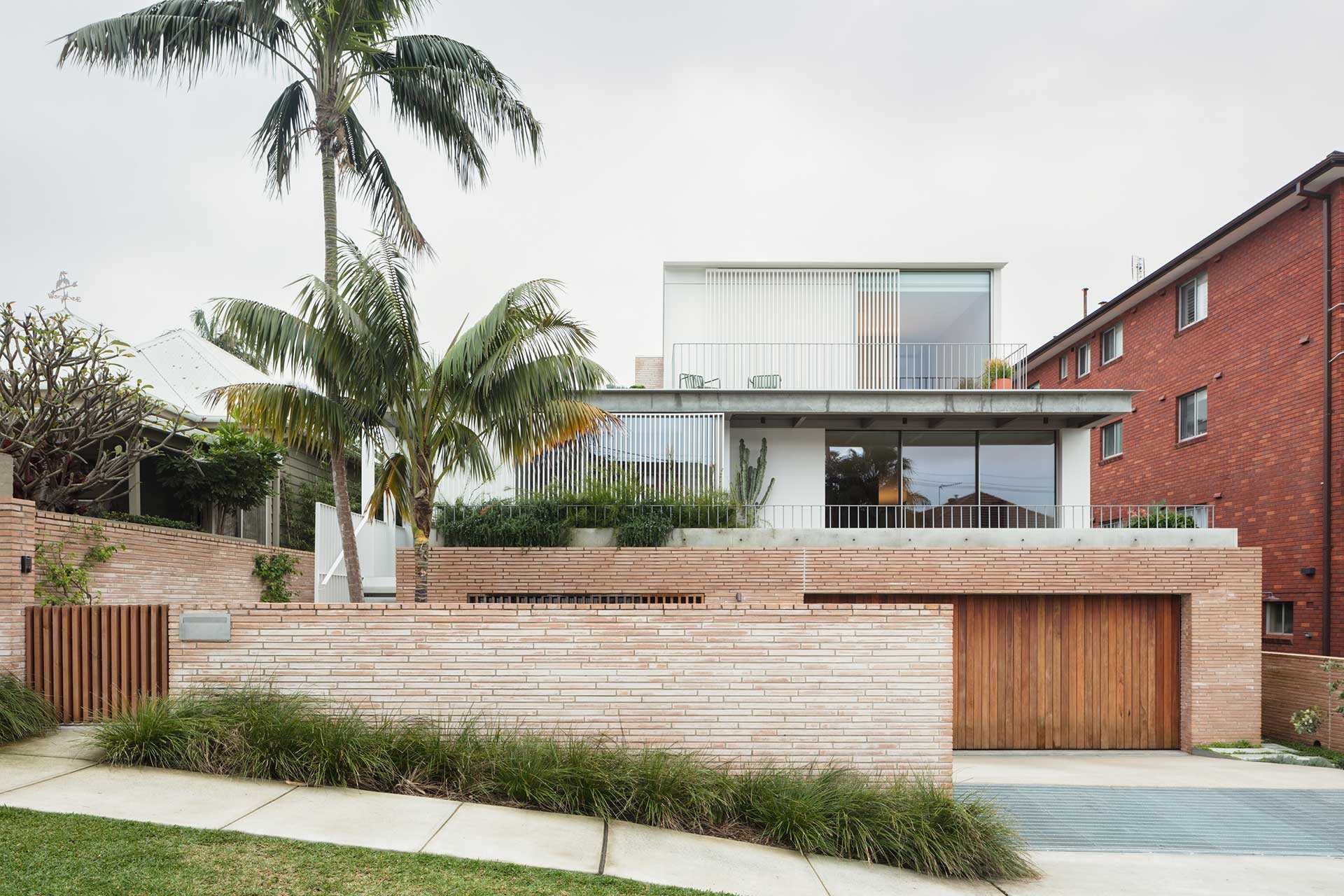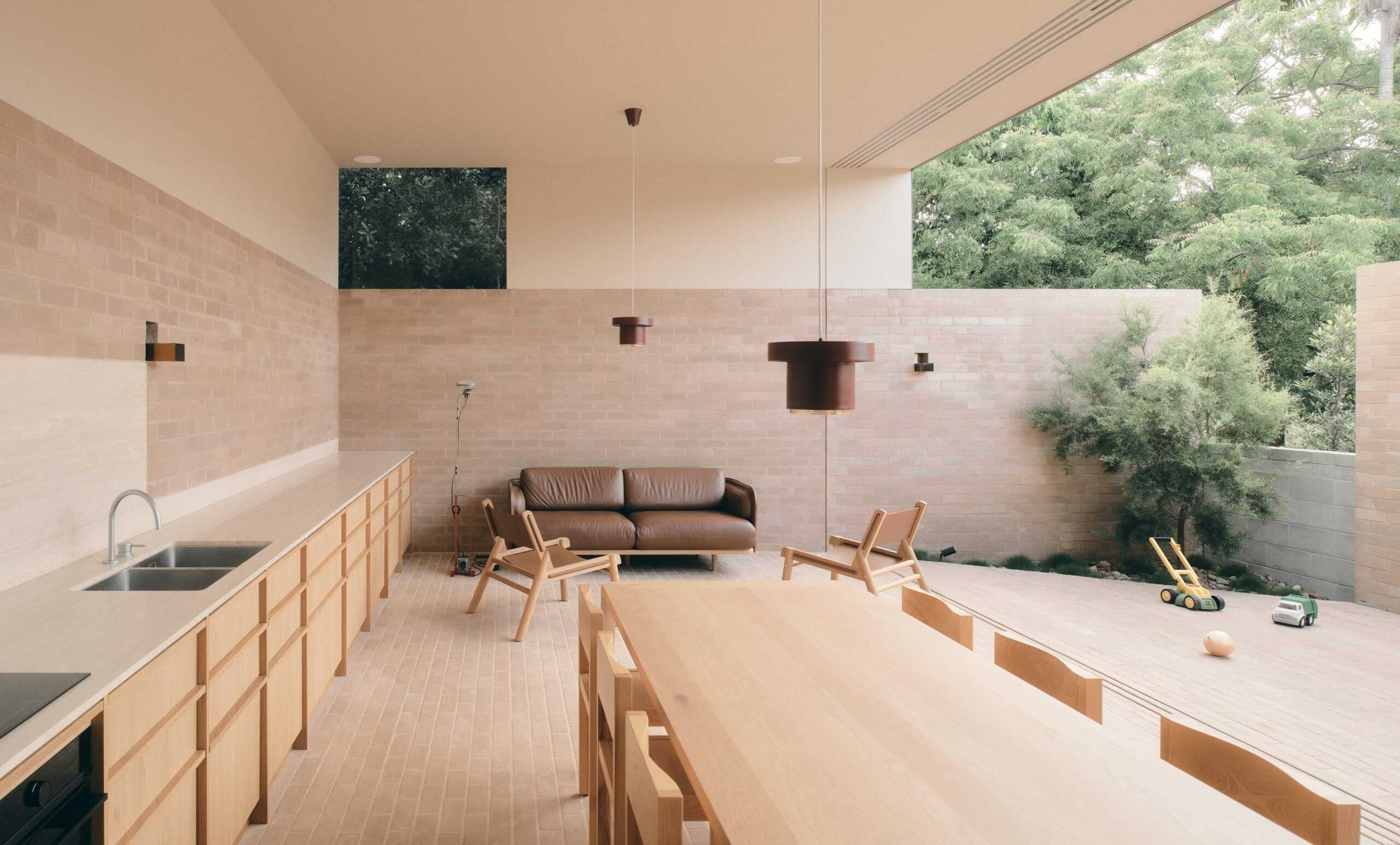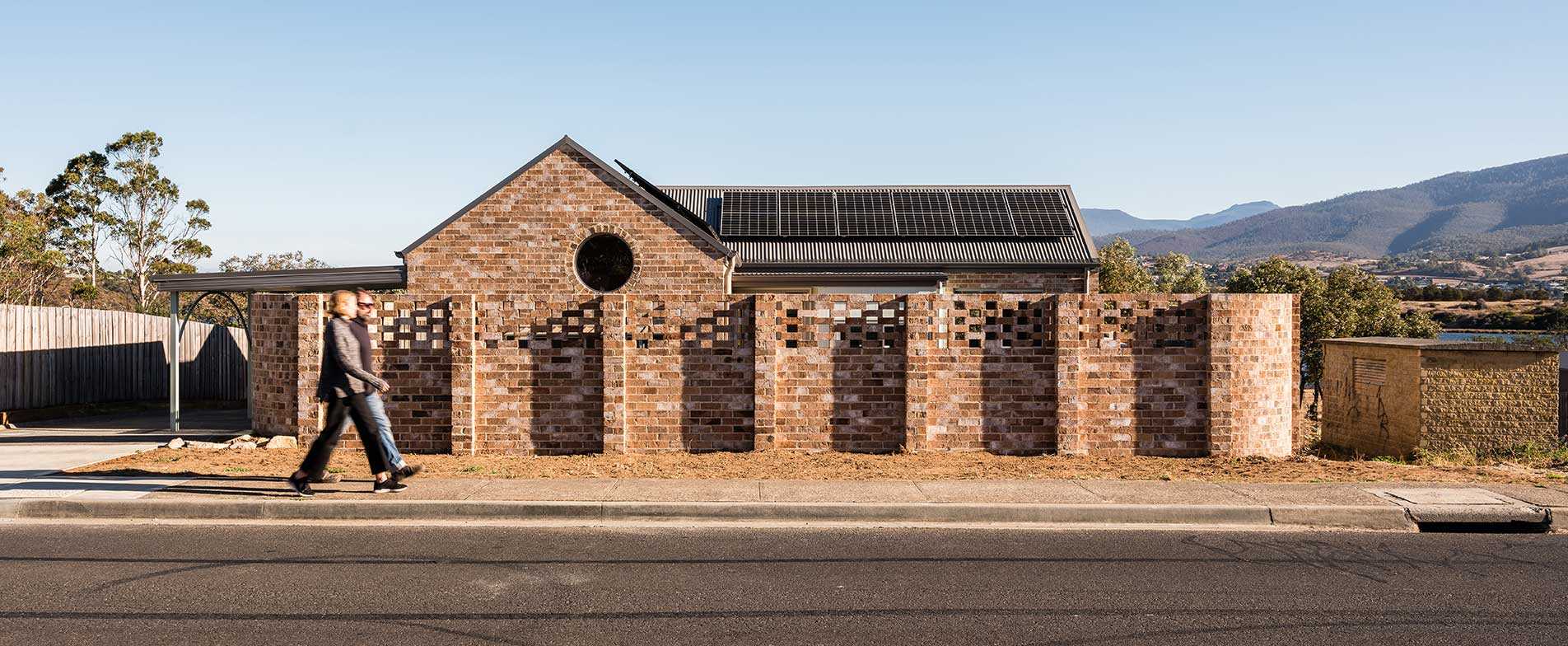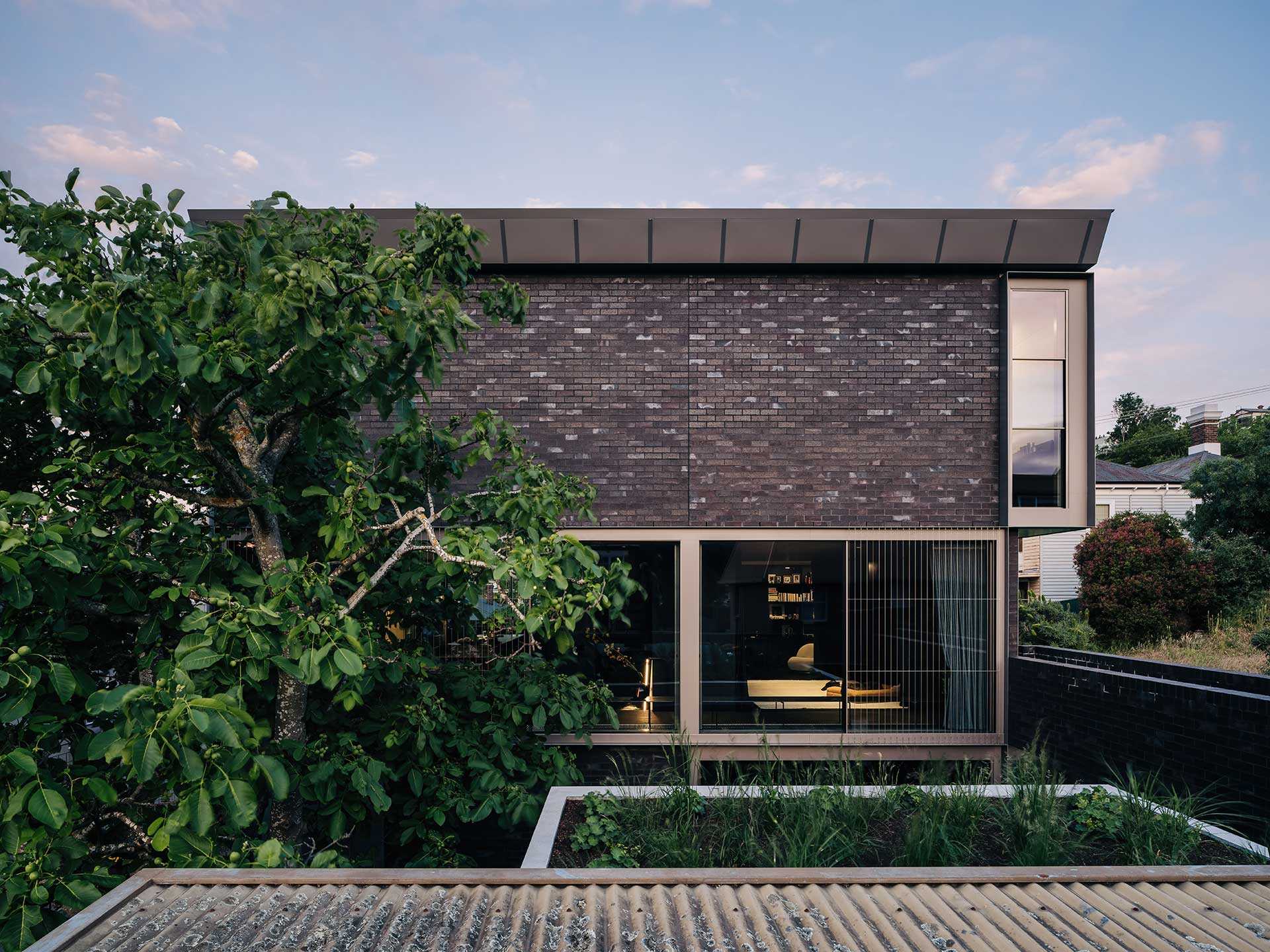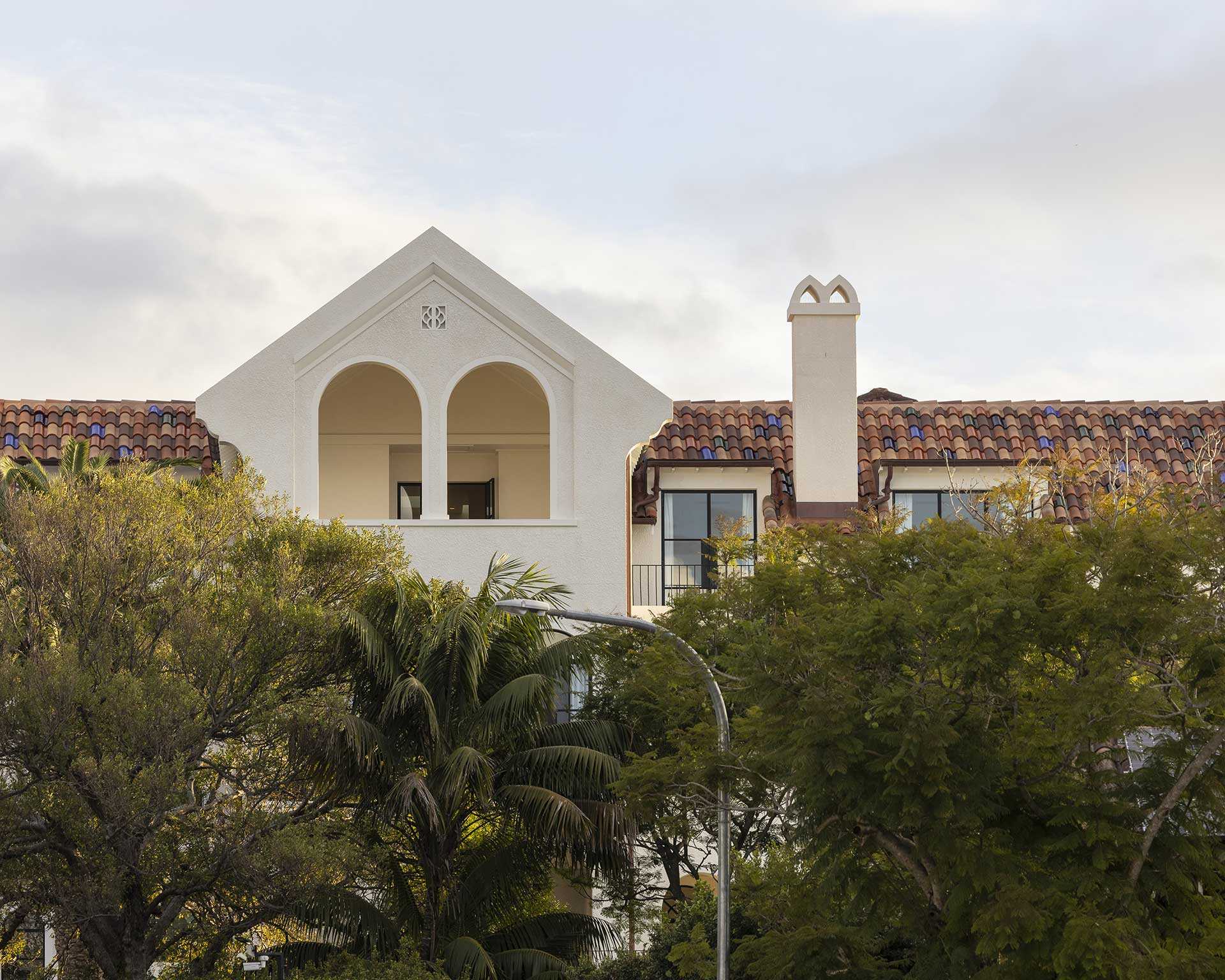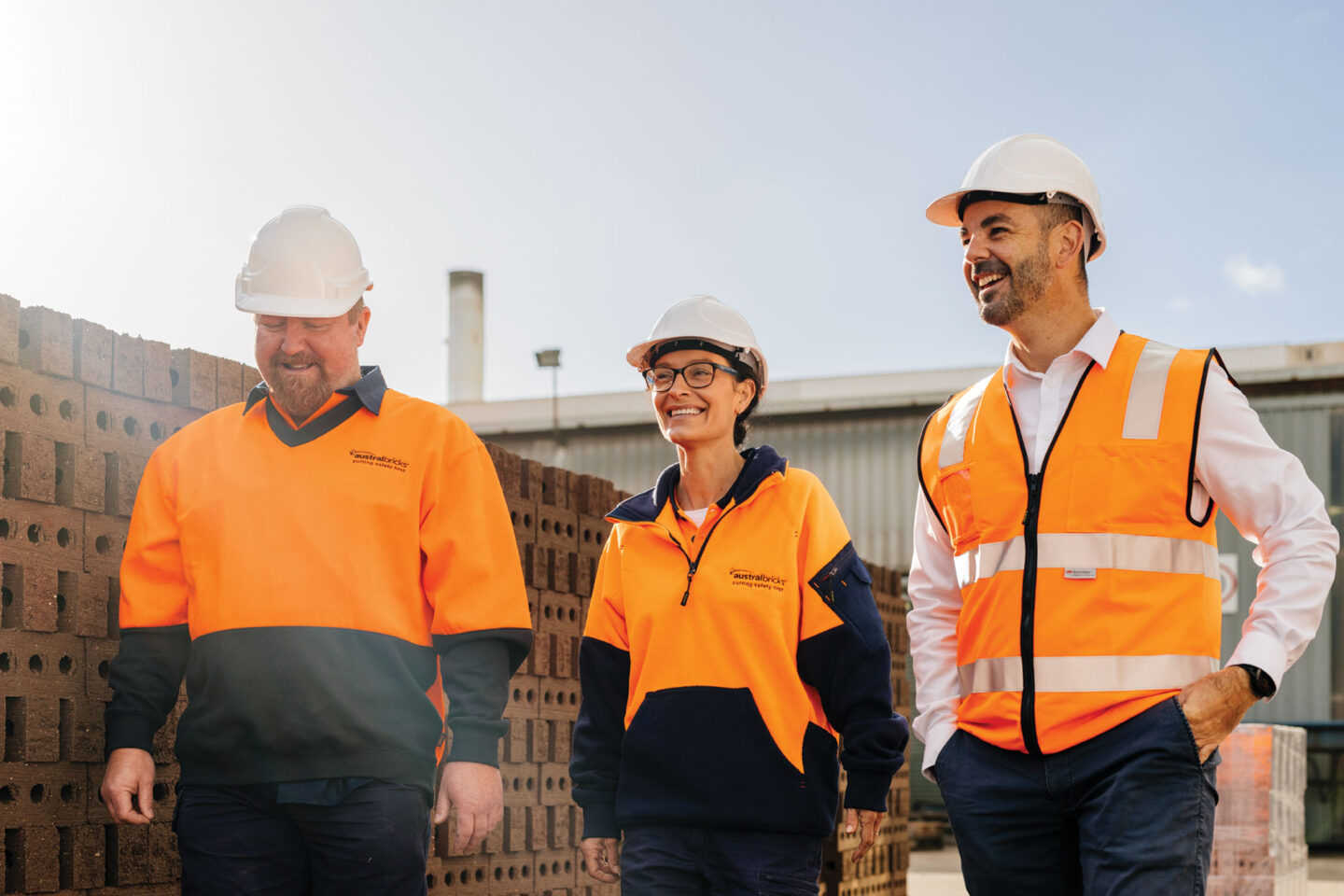
1+2 House
1+2 House, designed by Curious Practice, presents a robust façade to the street, with GB Masonry blocks providing the structural framework and corrugated cladding offering a protective shell. “The hard blockwork gestures at an Australian suburban stoicism, and the corrugated cladding implies a familiarity,” says architect Warren Haasnoot of Curious Practice. The design team selected the blockwork because it can be used structurally, and it withstands potential floodwaters as the house is located in Newcastle on a low-lying site.
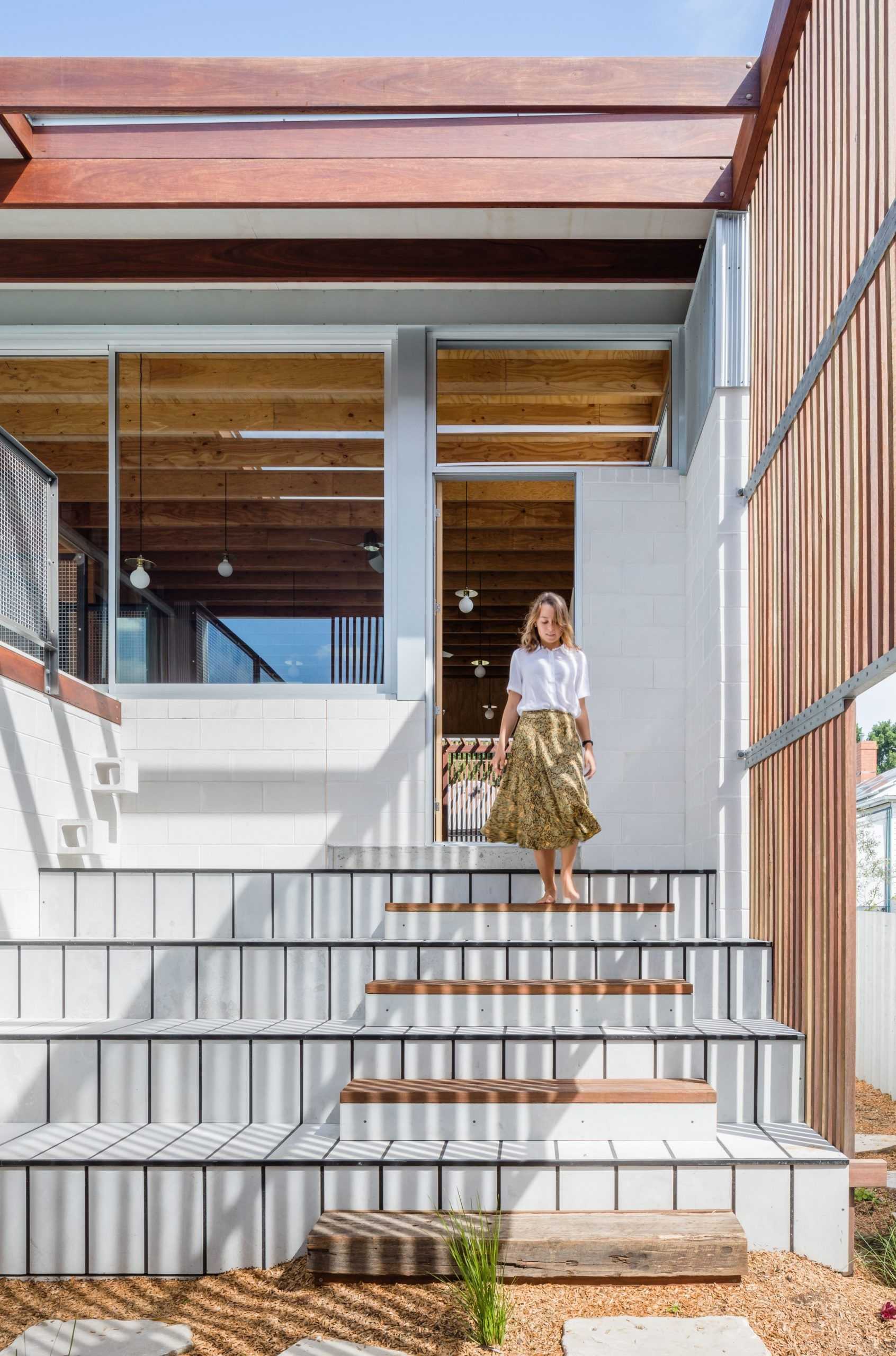
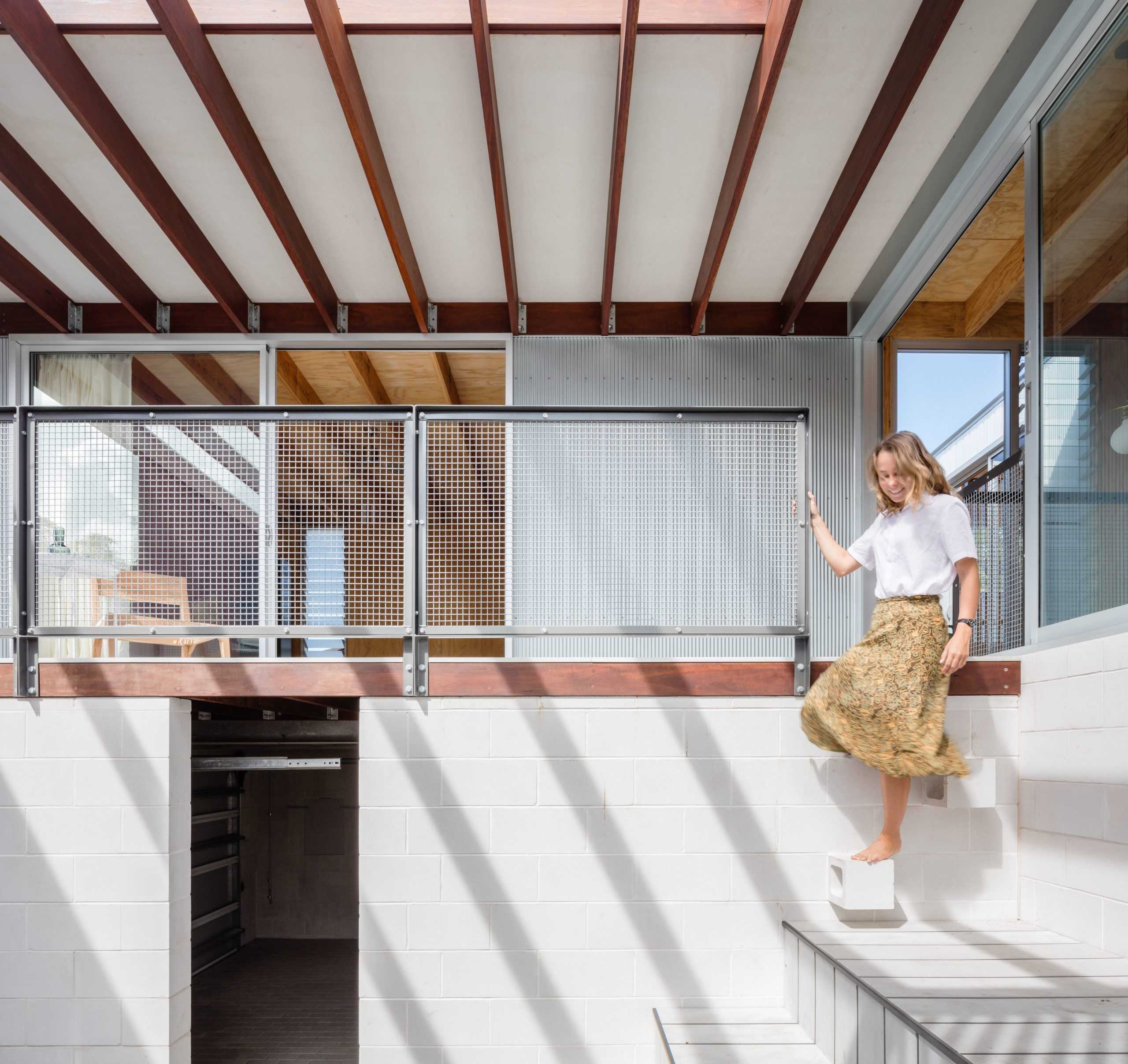
1+2 House is home to Vikki, who engaged Curious Practice to design a two-bedroom house with a self-contained studio and connection to the garden. She wanted a home for her children to visit and stay, and a sanctuary for her grandchildren to play in the garden.“The building was to embody the most important things in Vikki’s life, and was more about how she wanted to live and occupy a space, rather than a checklist of rooms or program,” Warren explains.
He describes the building as being “layered, almost labyrinthian or Escher-like,” with overlapping and sheltered internal and external spaces.The modest budget also informed the design concept, as did Vikki’s preference for honest, hardwearing and maintenance-free materials (and a definite dislike for plasterboard). “We were interested in the idea of a ruin or unfinished house. How we can take simple, modest materials and craft them in a way that elevates their importance, leaving them in a raw state so the building can age over time.”1+2 House is built to the front boundary and entered via a front gate into a private garden that captures the northern sun.
Large steps double as seating and provide access to the main house and studio. Another garden sits beyond the garage, and the landscape also opens up at the rear.Curious Practice used materials that are meant to be raw, left natural and unfinished. This reduces the need for maintenance and upkeep and respects that notion that materials will patina with time and wear. Externally, this included masonry blockwork walls and corrugated cladding roof, providing a robust and protective shell. Internally, plywood unifies floors, stairs, built-in furniture, walls and ceiling for a warm and textured interior.
Compressed fibre cement lining is also used where higher resistance is needed.The design team selected Austral GB Masonry Smooth in Porcelain because they can be used structurally and withstand flood waters. “GB Smooth offers the quality finish of a good brick (particularly in the half-height format) but has other added benefits,” says Warren. “The block is strong and robust, but the smooth texture is refined and can be paired with other materials.”
At 1+2 House, the Porcelain colour is a complementary contrast to corrugated cladding, concrete and rough sawn spotted gum.In developing the project and material palette, the design team gathered varied product samples that differed in style, manufacturer, quality, price, colour and texture. “The GB Masonry Smooth in Porcelain stood out as a clear winner for its texture, brightness and consistency of colour,” says Warren.

Curious Practice and the builder, Built by Eli, wanted to show off the craft and skills of the trades and experimented with the masonry blocks in subtle and practical ways. This includes a breezeway pattern on the ground floor and random courses.
Turned blocks serve as external light fixtures, as well as creating shelves for pot plants or hidey-holes for the grandchildren playing in the garden. A stacked course of blocks with the ends cut off conceal downpipes, and two blocks project over garden steps/stepping to provide access to the studio without needing to go through the main dwelling.“We like to look for ways that we can exploit planning controls to create interesting outcomes,” says Warren.
The height between the split floors is just less than 1 metre, which avoids the need for a balustrade. Currently one of Vikki’s son’s lives in the main house with his wife and two children, and Vikki lives in the studio, which has a separate bathroom and kitchenette. “It is nice how the living dynamic from the original brief has changed and the building has been able to adapt,” Warren says.
“The project answers things much larger than the client’s original brief. Beyond environmental resilience, its physical flexibility means it can be adapted in numerous ways, over generations.”
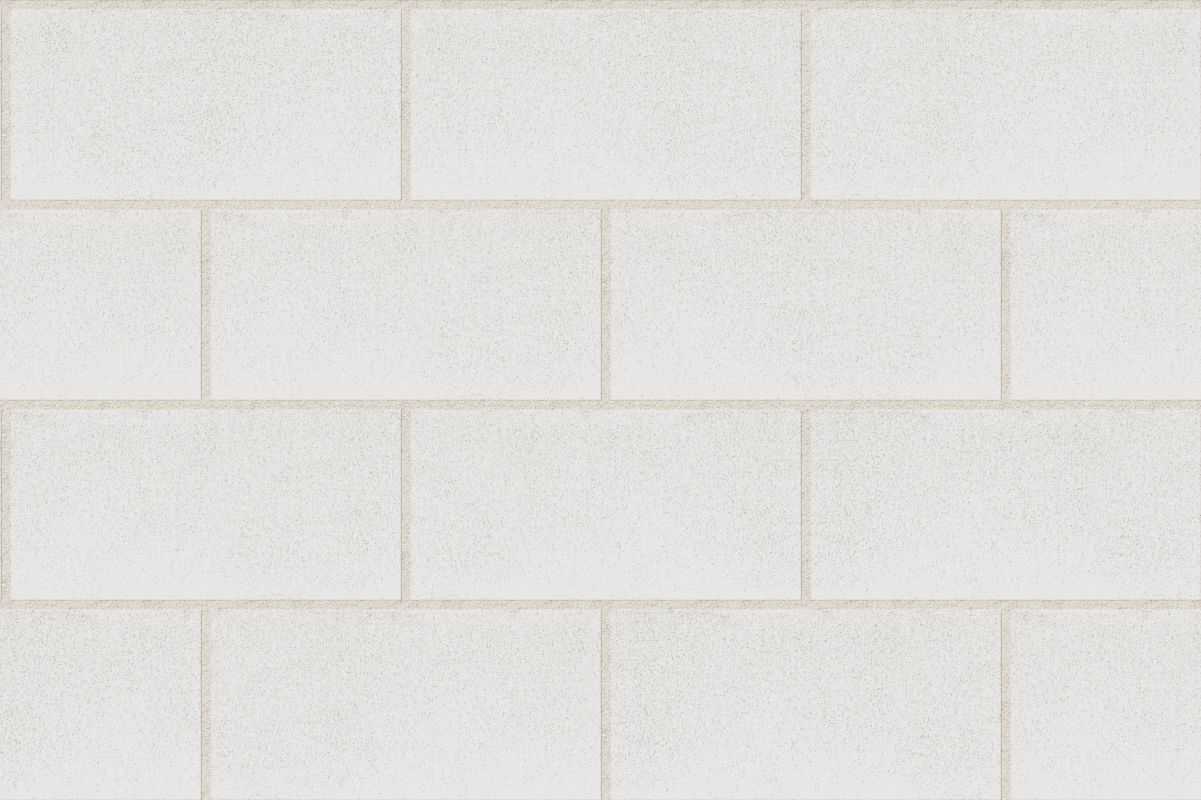
- Concrete masonry blocks have long been the work-horse of the construction industry. Austral Masonry block come in a range of colours, style and finishes to suit any building project.
Learn about our products.
Join us at an event.
